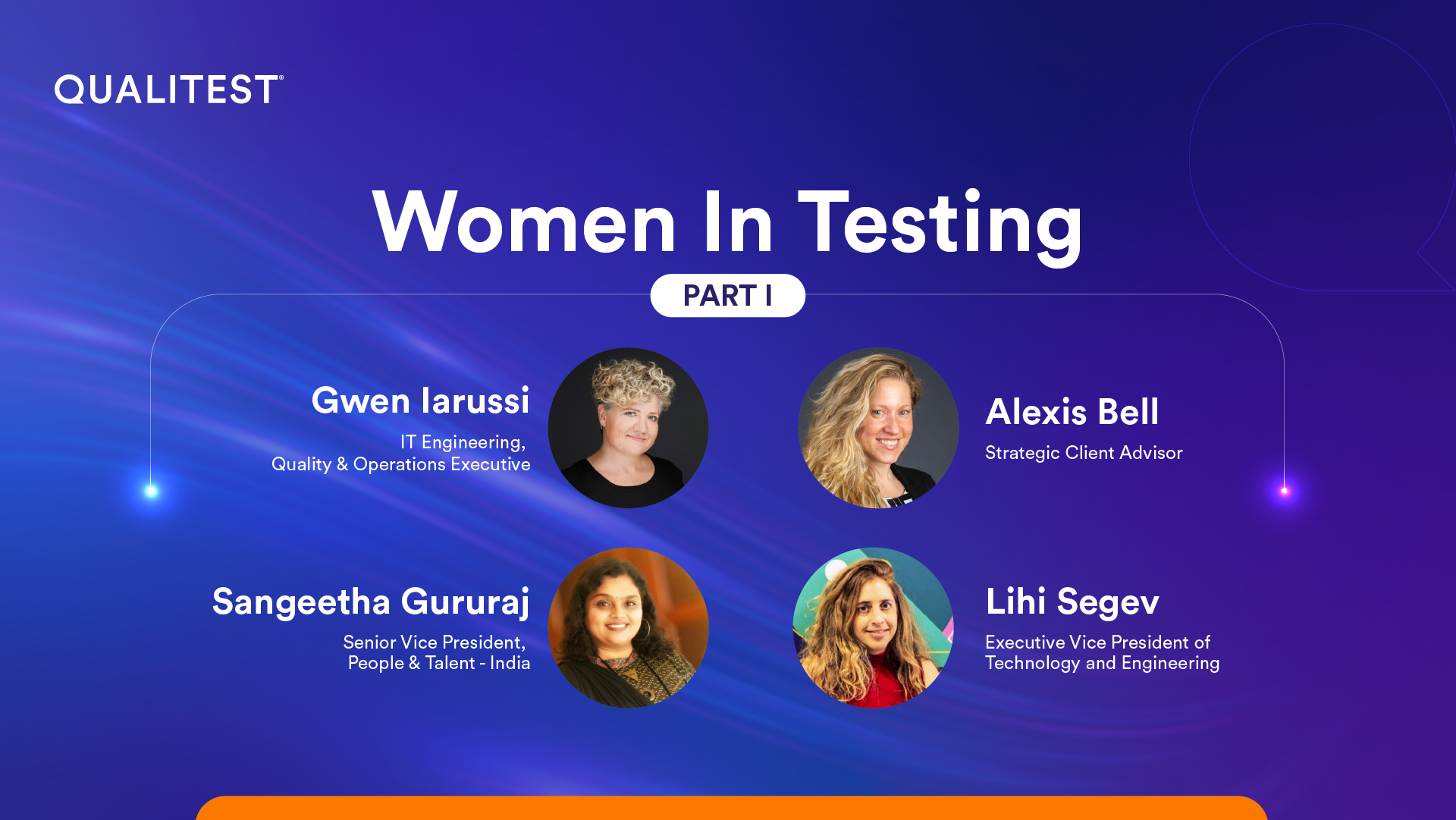
Panelists


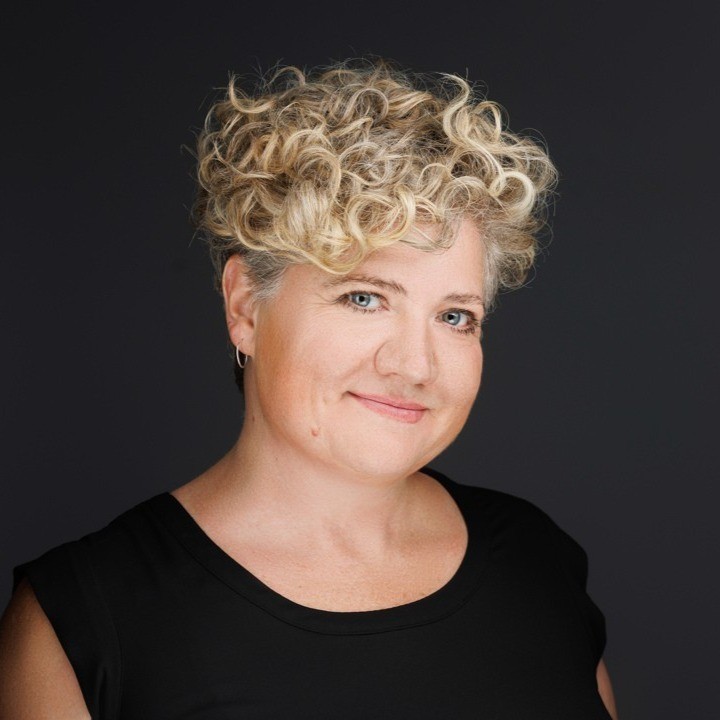
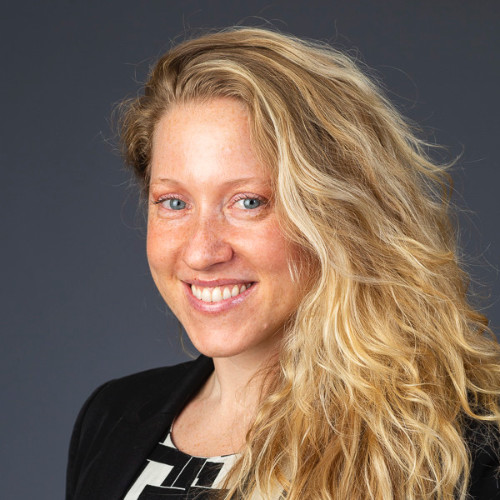
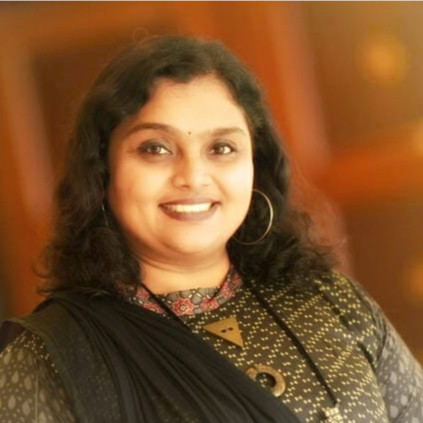
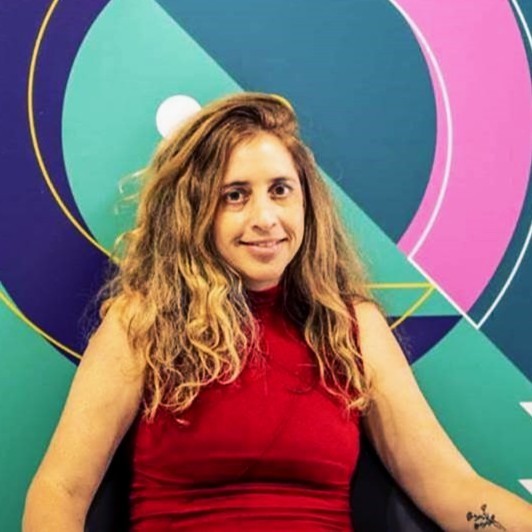
Michael Larsen (INTRO):
Hello, and welcome to The Testing Show
Episode 151
Women In Testing, Part 1
This show was recorded Friday, February 28, 2025
For this Episode, we welcome guest moderator Gwen Iarussi to help celebrate Women’s Month with an International take on women in testing roles from the front lines to senior management. Gwen hosts Alexis Bell, Sangeetha Gururaj, and Lihi Seghev to discuss their individual paths to success, the importance of sponsorship, mentorship, and advocating for oneself, strategies for overcoming bias and creating opportunities for diverse talent.
And with that, on with the show…
Gwen Iarussi:
Hi there. Welcome to The Testing Show. I’m Gwen Iarussi, founder of Athena IQ and leader of SCLC Governance over at Zions Bank. We are looking at women in leadership roles, specifically in technology in 2025, and I have some special guests with me today, Lihi Sehev, Alexis Bell, and Sangeetha Gururaj… Did I get that right? Excellent, excellent. I wanted to go around and have everybody introduce themselves. Tell us about what they’re doing today and maybe give us a brief overview of your history. Sangeetha, do you want to launch us off here?
Sangeetha Gururaj:
Sure. Hi. My name is Sangeetha Gururaj. I’m the Senior Vice President, People and Talent, for Qualitest India. I have worked in all aspects that touch people in the organizations. Talent management, performance management, people experience, learning, career development, twenty-two years experience across different industries doing what I love the most; people advocacy.
Gwen Iarussi:
Awesome. Welcome Sangeetha. Lihi, would you like to go next?
Lihi Seghev:
Sure. Hi Gwen. I am Lihi Segev, executive vice president in Qualitest, leading the tech sector. I work with incredible partners like Google and Microsoft, Meta, Qualcomm, and more… driving innovation, quality, engineering in the tech industry and happy to be here with you.
Gwen Iarussi:
Awesome. Welcome. Alexis?
Alexis Bell:
Great, thank you. I’m Alexis Bell. I’m a senior vice president at Qualitest. I work predominantly in the healthcare sector as well as retail consumer goods. I work with our strategic clients driving transformation, digital modernization, and all around QE, QA, and DE work.
Gwen Iarussi:
Excellent. And just for our listeners, I’m located in Salt Lake City, Utah, the USA. Where are you all located? Right now ?
Sangeetha Gururaj:
I’m located in India. This is Sangeetha. I’m in India. I’ve always been doing that, being in India, but working across all time zones.
Lihi Seghev:
Okay. So moving next, I’m located in the hotspot, I’m in Israel. Tel Aviv. Yeah, time zone is globally everywhere, so Hi.
Alexis Bell:
And I just moved to San Diego in July, so Pacific time, but I’m actually in New York right now. I’m on the east coast all the time. I get to do a bell ringing actually today at NYSE, which is pretty exciting. I’ve never done that before. But yes, I moved from West Virginia, which was an interesting place to be now and back in California.
Gwen Iarussi:
Awesome. So we’ve got kind of the globe covered here, which will be good. It’ll be interesting for the conversations to kind of head it off, I want to talk a little bit about what women in technology looks like in 2025. We live in interesting times and it is interesting to kind of look at from a global perspective. I know in the US here we’re still looking at between 20 to 40% of the roles in technology and most of those more on the 20% side, especially as you get into larger organizations. So still quite a gap in terms of representation and even in the academic side of things, you are seeing a downward trend in terms of women really going into STEM type degrees and coming out of universities with those degrees and going into technology careers, which is a little unsettling at times. But I think the focus here is really around reflecting what our individual journeys are and what our experiences have been and what we have seen as far as the environments that really create space for inviting more women into the technology world. I’m sure you all have some really unique perspectives on that. As far as starting the conversation off, I want to talk a little bit about what you’re seeing in your perspective areas in terms of women joining tech, women in technology roles as women leaders in these roles. What’s your experience in 2025?
Lihi Seghev:
I think in 2025 we’re seeing more and more women in the tech industry. We do, we see I think investment and more mentorship and more flexibility, but I would say it’s very clear that the challenge remains where women are still underrepresented at the top. So I think the real change again needs to be in all levels. In Qualitest, as I see it, again, and I see it represent well the industry. We see more and more women in tech. In some of the location we have more, even than 50%. So that has even changed. However, again, the challenges I think is where you got to the leadership and the management. Where I believe is like real change come from the intentional sponsorship, actively opening doors, ensuring more women getting to high impact roles. So diversity is not only hiring more women, which is totally important. It’s one big and very important step, but for real change we need to start with more action also in the top layers as well. That’s my intention.
Gwen Iarussi:
Yeah, it’s time to move up.
Alexis Bell:
Yeah, I agree with that. Exactly. You see that with our clients too. Everybody likes to talk about how there’s all these women at whatever company it is. Where are they? Where are they in the leadership roles? The discrepancy between how they’re represented everywhere else or at the organization. And then at the top you have certain organizations where you do look at what kind of DEI programs they have and it’s super impressive where you can see a 50% diversity at VP and above levels and I’m always blown away and I try to ask, how do you do this? And some companies, they’re factored into their MBOs and it shows and when you don’t have that in senior leadership’s C-suite roles, it doesn’t happen as much. It is nice to see and there’s a lot of change that needs to happen, but when people say, oh, we’re whatever percent women and you don’t see anyone in the C-Suite roles, it’s frustrating.
Gwen Iarussi:
Yeah, for sure. It definitely makes it difficult, especially from when you’re looking for things like sponsorship, when you’re looking for things like mentorship and really having that person that’s throwing your name out there and getting your presence in those discussions and really inviting your voice so that you get that exposure, that can be really, really difficult. I certainly have experienced that in my career as well.
Sangeetha Gururaj:
I have an interesting twist to this. I also come from that part of the function, which is HR where a lot of women are there, but if you notice I have the same comment that at the top, women are not much in HR leadership as well, which only means that I think a lot of efforts were put in the past to ensure that women are part of the workforce. And in the last couple of years we see a lot of that and you don’t see too much earlier when we were hiring, so we hire a lot in the technology roles itself. Earlier we used to go look for resumes of women and we could try and see if we can bring the diversity angle. Today, we don’t have to go search for it because we have a lot of them coming in. And I think a lot of efforts have been put in the last 10 years, a whole decade it took to have the industry move from one trend and then now it’s time to focus in bringing people from one level to the next level and take the women at the top. Even in that part of the industry where there are a lot of women available from over the years, also the representation an the top is not much. That’s an interesting angle as well.
Gwen Iarussi:
Yeah, it’s across the board. One space that you’re starting to see a lot of women in leadership roles, especially here in the US is women entrepreneurs who are going off and starting their own organizations. You’re actually starting to see that quite a bit in the AI space. Women’s presence in AI is very encouraging, especially when you see there’s been this trend the last few years here where you have individuals who get to a certain point and then they leave the field because they just don’t enjoy the work anymore. And so for those of us who have been in technology for a long time, we love this stuff, especially in testing and quality. This is more than just a job, I think, for most of us, those of us who are making this, our lifelong careers, each of us are in leadership roles today. So we’re coming from unique perspectives. We’ve walked that path in our careers, in our personal lives, in what we’ve done to get to where we are today. So why don’t we talk a little bit about that. What has your individual path been? And let’s start with Lihi. We’ll go from there.
Lihi Seghev:
I would say that sponsorship, when it was taking in action is a very good advocate. That also kind of opened my doors. I see myself as someone that can pronounce himself well and when I have any opinion, I will definitely share it. At least I can think about a turning point in my career when I was already a manager and pulled myself in several areas. Maybe not where I could have seen myself, but it didn’t even put myself there. So my former CEO actually actively recommended me for a high impact role. Back then it was a VP of sales and it has already globally impact and things that I haven’t done in the past. So putting my name forward in leadership discussion, put you in another place. This visibility change your way, my direction. Because true sponsorship is not just about encouragement and about mentoring.
It’s very important. I think it’s very influencing, but I think in order to create opportunities, you have to do actions. Well, at least I can say for myself that I’m mentoring not for my first time. I also was being mentored not even one time. And I think that when you’re there, you’re feeling much more responsible. And I put myself as a goal if I can, to promote at least two women that I see in the management level or in optional for management roles. This is something at least that I do. I felt my former CEO has led me with a better statement on this.
Gwen Iarussi:
Yeah, great perspectives. Alexis?
Alexis Bell:
I actually changed industries, so I used to be in the wine industry. I had my own company in Hong Kong, changed about nine years ago, which was an amazing move. I’m so glad I got to do that. In order to do that, I went and got an MBA. So I was sitting for the advanced sommelier exam, which is a really hard to pass exam. It’s even hard to get invited to sit for it. And I didn’t pass it and it was pretty devastating. And at that point I decided I could either go study for another year and try to pass this exam or I can go get an Ivy League MBA. So that’s what I decided to do and I’m so thrilled that I did it because it’s interesting in the wine industry it’s really hard to transition outside of there. It was super challenging. I went and got my first job in tech at a point of sale company called Lightspeed and I was doing channel partner work and then through my MBA got recruited for Qualitest and it’s been quite a journey. So even when I am at the table and everyone’s, oh, I have 23 years of QE and QA experience, I’m like, that’s nice, that’s really great. But I will say all, to Lihi, Sangeetha, I’ve spoken to them a lot and any woman who’s at an SEP level, a VP level has had to fight to get there. Nobody’s handing that to you. I’m sure Gwen, you know that as well.
Gwen Iarussi:
Oh, I do.
Alexis Bell:
Yeah, you have to fight. And then I’ve gotten lucky enough to do some of these fireside chats with Sangeetha and amazing leaders and you know that anytime you meet a woman who’s in a C-suite role, they fought to get there. What’s the secret? Advocating for yourself, like Lihi said, constantly proving yourself and letting everyone know what you’ve done. Your work speaks for it through results and all that, but you still have to fight.
Gwen Iarussi:
Yeah. Sangeetha, how about you?
Sangeetha Gururaj:
In my case, I think there’s a lot to do in my upbringing. I have an extremely strong trailblazer for a mom. So when I grew up I saw her trailblazing through her industry in different areas, not in technology or IT, it was in the music field, but she was the first woman to do a lot of things. I think I took that pressure on myself or maybe I’ve just looked at her and imitated most of what she was. I used to be advocating for myself as when I just entered as a fresher as well, I realized that I became louder. I became a person who would talk a little bit more and probably then it really worked out for me and I just walked in with a lot of empty confidence. Now when I look 20 years back, I think that worked beautifully for me. Failure didn’t matter to me because I would say, okay, fine, sorry, and then go back and do it again the next day.
Sometimes you get noticed and you get picked for good projects when they know that you’re bringing everything over there. But it also didn’t do great for my personality overall. Initially I was also the person who people would get worried to put on a project because I would go all out and even trouble my managers. The opportunities would come but not the best of the opportunities. And that’s when I realized the value of sponsorship. Even before, when people talk about having a sponsorship, I had reached out to one of the leaders who I wanted to work with and he was not choosing me. And this is in I think about 10, 15 years back and I said, what should I do if I want to be in project? And he said, you had to ask and then you had to also just come and discuss with me.
And then when he started explaining and it was a man who started explaining to me that all this is fine, but then we have to channelize it in the right way, that value of sponsorship and then the advocacy really helps. Unknowingly, I went and asked for it and everything that we now talk about in the last five years that what women should do and women should get. I think I had bought it quite early in my career and that set me off. It helps me to continue to be very ambitious. There’s always a term used for women and women only and that is over ambitious and I don’t believe that only women can be over ambitious. I don’t even believe that term over ambitious can be there. I think everyone is very ambitious and that would’ve worked and channelizing it in the right way and that’s how it worked. But sponsorship is what helped me as well. We’ve done a lot of HR interviews with candidates. It is mostly always the women who say, I have been told that I’m over ambitious. I have never heard men say, I have been told I’m over ambitious. And that’s when I realized it’s more of a women thing somewhere. What is over ambitious? It’s just very ambitious. So I think that was the point.
Gwen Iarussi:
And it brings up, it’s funny, one of the things you remind me of Sangeetha is that quote, the quiet women rarely make history. We have to actually use our voices and be there and find that voice. And I think that’s part of it. And when you look at cultural norms, and I’m sure this kind of varies in our geographical locations, but I think some of it is common when you look at the social structures and you look at culture and you look at some of the social norms that we have been raised in and how that has changed over just even in our lifetimes and the women who have paved the path before us and those who continue to pave the path and us continuing that path forward, one of the things that stands out to me and all of you focused on is that individual oomph, that grit and that determination to keep going.
That’s something that strikes true for me and my experience. I started very early on doing technology support for Prodigy and I don’t know if you remember Prodigy at all very early online services here in the US before the internet was really a thing. And I ended up working for Packard Bell doing hardware support for their products. Ended up getting into the testing later and I’ve been working with delivery teams ever since. But everything you’re saying speaks true in terms of looking for opportunities and taking the opportunities as they come. One of the things that I want to caveat into is you see a lot of division when we start talking about these topics and we start talking about DEI, I know it’s very heavily debated within the US right now because of all of the political influence. And so I want to take us down a path of building bridges, especially in this conversation, which leads me to invite some of our silent participants on this call who have kept the background so far, but Matt Heusser and Michael Larsen, having you both join the conversation and be part of this and talk a little bit about your experiences and how we all can work together to create the spaces for all of us to be successful.
Matt, do you want to give us a little bit about your history and some of the challenges you’ve had in your career in terms of making advancement?
Matthew Heusser:
Gwen and I have talked offline about it a little bit. I have a highly agreeable personality. I have a loyal personality. I’m unlikely to jump around and demand raises. I’m raising my daughter. I have her during the school year and half of the summers, so all of a sudden I can’t fly around to conferences like I used to. I can’t jump in the car and go out to the client site like I used to. I don’t have anybody enabling me to be intense. I’ve made some personal choices to focus on my family. Corporate America doesn’t like that very much. That can be a challenge. So you have to decide how to respond to it. And I think that it’s fair to say more women struggle with those decisions than men. Sangeetha, I was very encouraged while her kids came in and she had to go for a minute. I think that’s great. I think we had an opportunity with Coronavirus for the world to find a workplace that would work for more people
Gwen Iarussi:
Yeah. Level the playing field.
Matthew Heusser:
And we’re kind of tilting, at least the federal government right now is kind of tilting back from that for whatever reason. It’s a pendulum. They go one way too far and they go the other way too far. And I hope when we come out, we’re going to be in a better place.
Gwen Iarussi:
And I think Matt, I find even in our conversations, I find your perspective unique because I think stepping into a role that is outside and we’ve had this conversation stepping into a role that’s outside the norm for men, at least in the US being a single dad gives your experience a very unique flare to it. And I think you are starting to experience some of the things that women experience throughout their careers. And I value your perspective because it is very interesting to see that and recognize that when we talk about looking at creating spaces and we talk about creating opportunities for individuals and humans as opposed to a very subset of those individuals, you get to the heart of it, which is it’s about doing this for everybody and making sure that we are considering the human factor of all of this and making sure that we are looking at our employees as humans as opposed to machines that are coming in and a cog in a wheel during the day or a bottom line or the term human capital gets thrown around a lot here. And I find that term to be very dehumanizing. And so I think as we continue this discussion, how do we shift more towards that human-centric approach? But before we do that, Michael, I would love to hear some of your challenges as well.
Michael Larsen:
So my environment has been fairly interesting. For clear transparency, for an extended period of time I worked for Gwen directly in the sense that she brought me in to handle a contract for an extended period to help in a training thing that we did for several months. So I was a direct report for Gwen. The reason I mentioned that is I’ve had a relatively unconventional career. I came into software testing… I came into tech very much happenstance. I was planning on being a professional musician and I reached a point to where I desperately needed a job to help pay for things. My musical career just wasn’t covering at that point in time in 1991. A temp agency sent me to Cisco Systems and I didn’t have much of a tech background outside of using computers in the music space. But the release engineering team, which for all practical purposes was also the testing team was mostly made up by women.
The group of women that were there saw this 23-year-old long-haired skinny kid and they saw something in me that maybe other people wouldn’t have. And they kind of looked at me and said, yeah, he’s a bit of a weirdo, but why not? Let’s give him a shot. Let’s see what happens here. Honestly, I owe my career to what I call that squad of six who all went to bat for me. So I have many experiences through my career where women have not just been there, but they’ve actually been my mentors more so than men in the industry have been. So I don’t know that that’s something anybody else can really speak to, but I’ve had that experience and for the past, it’s been 15 years now, I’ve worked for an environment that didn’t require me to be in an office. If I wanted to work from home full time, I could.
And after 2016 it was mandatory because they closed down our physical office in the Bay Area. We were reporting to an office on the east coast. And so everybody in California, we went remote full time. And I’ve effectively worked in that capacity since then. My wife and daughters, as they’ve gotten older, of course the work that they do has been outside of the home. So I’ve transitioned a bit, not just being a development test engineer or working in software quality, but I have also effectively taken on the responsibilities, if you will, of being the house husband. And I am perfectly okay with that. It’s been great. Love the fact that I’m the one who cooks most of the meals. I’m the one that makes sure that a lot of stuff gets taken care of because I’m the one at home, of course, I’m the one that takes care of it and my company knows that.
And every once in a while I’ll be in a meeting and say, Hey, I got to take the dogs out. Or hey, dinner’s about to get ready, or I’m on some call someplace and they’re used to me being in the kitchen. What are you doing? I’m cooking dinner because my daughters and my wife are going to be home in about half an hour and I don’t want to have them have to wait for this. And the neat thing is is that when you explain that and then once they see you do it a number of times, they just accept it.
I think that’s an important aspect that in my worldview there is outside of, if you’ll pardon the expression, physical birth, there is no such thing in my worldview as men’s work and women’s work. It’s just work and whatever needs to be done gets done by whoever is there. In my relationship at home, we work as a team, all of us, we make it happen so that we can all take advantage of it. And in my work life, it’s the same deal. I want to be able to make sure that I am there for everybody. Many of the experiences that I’ve had have been informed directly by my interactions with women over 30 plus years, and I’ve been incredibly grateful for that.
Gwen Iarussi:
Awesome. You bring up an interesting point. I think it’s funny because in our conversations, I know you’ve talked about reporting to women for most of your career. I’ve had the opposite experience. I’ve actually reported to mostly men. In fact, the only time I reported to a woman was for two months in my current role with Zion’s bank. And then she moved on and then now I have a new boss who’s great, but it was like the two months that I had a woman leader, and so I’ve had the exact opposite experience.


